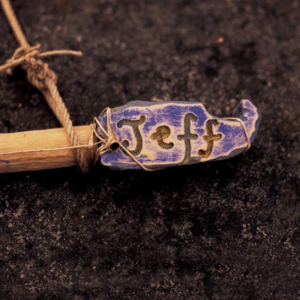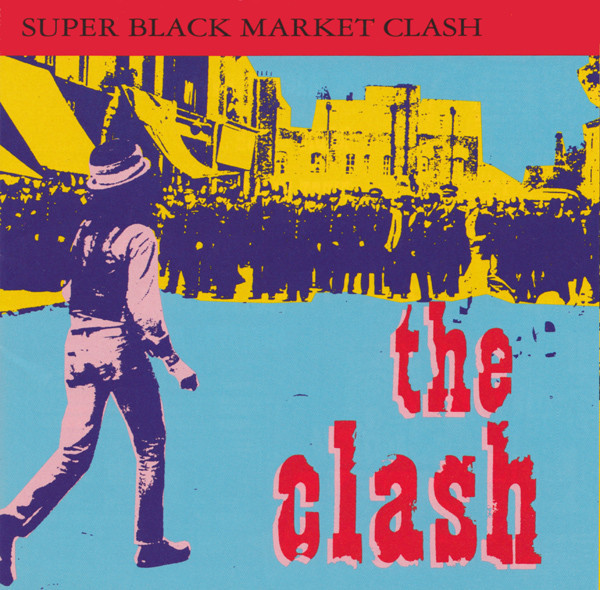Naturally, Frank had recorded all the gigs, and used his suddenly free time to compile a few albums from the gigs that had actually been played. Broadway The Hard Way was the first of these, and concentrated heavily on the new songs that had debuted. Considering the timeframe, the lyrical content and subsequent asides focused on two pet peeves: the activities of the Reagan administration and the hypocritical hijinks of such televangelists as Jimmy Swaggart.
The album originally appeared two ways—a two-sided program on LP and cassette, and an extended, rejigged sequence on CD. Both started with the same three songs, all new. “Elvis Has Just Left The Building” is sung by new guitarist Mike Keneally this side of a Johnny Cash impression, punctuated by accents from Ike Willis and a pretty good imitation of Sam Kinison screaming. “Planet Of The Baritone Women” is misogyny directed at Wall Street in an old European style, whereas “Any Kind Of Pain” almost approaches adult contemporary in its sax solos and chorus; Frank takes a solo here.
On the LP and cassette, the balance of side one was filled by “Jesus Thinks You’re A Jerk”, which was the last song before intermission. This is a highly intricate song in structure and harmony, mostly dealing with televangelists Jim Bakker (who went to prison for embezzlement) and Pat Robertson (who was running for president that year) but touching on the NRA and the KKK along the way. A fan named Eric Buxton, who’d been following the tour, is brought up to read a Twilight Zone-style monologue before the music becomes more adult contemporary again.
Side two of the LP and cassette begin with Frank explaining the concept of a form of prison food called “confinement loaf”, which is referred to throughout “Dickie’s Such An Asshole”, which follows, and elsewhere on the album. However, the CD omits this detail, so it goes straight from “Any Kind Of Pain” to “Dickie’s Such An Asshole”, matching the LP and cassette sequence again.
So anyway, “Dickie’s Such An Asshole” dated from the Roxy era when the Watergate hearings were threatening to take down Nixon; clearly Frank saw parallels between that scandal and the Iran-Contra affair from the year before. “When The Lie’s So Big” continues to lambaste Republicans, with clever inserts and quotes from the horn section, then “Rhymin’ Man” turns its ridicule to the Rev. Jesse Jackson, who was also running for president that year. This time the Johnny Cash voice is more overt. “Promiscuous” is rapped by Ike Willis about then-Surgeon General C. Everett Koop (whom Frank felt resembled Cap’n Crunch via his uniform and facial hair) and the theme from the TV show The Untouchables allows Ike to do a Robert Stack impression while skewering figures in Iran-Contra.
The LP and cassette end there, but the CD has another half an hour of music. “Why Don’t You Like Me?” rearranges “Tell Me You Love Me” with new words about Michael Jackson, sung by Robert Martin in a bad impersonation. “Bacon Fat” is an old R&B tune with new lyrics about confinement loaf, while the jazz instrumental “Stolen Moments” becomes a prelude for special guest Sting to come onstage and sing “Murder By Numbers” (which, he explains, was denounced by Jimmy Swaggart). “Jezebel Boy” asks why vice squads don’t round up male prostitutes with the zeal they apply to females. After some entertaining sound effects, it’s a thematic switch to “Outside Now”, and Frank gets to solo again, as he does also on “Hot-Plate Heaven At The Green Hotel”. That leads thematically to a rewrite of “What Kind Of Girl?” focusing on Swaggart’s reported adventures with prostitutes. There’s a quote from “Strawberry Fields Forever” halfway through, which is this album’s only nod to an extended “Beatles Medley” played throughout the tour, with further parody lyrics devoted to the torrid subject. The CD ends with “Jesus Thinks You’re A Jerk”, complete with the intermission announcement and exhortation to vote.
Considering that most of the songs are cobbled together from multiple performances—sometimes as few as two but usually five or as many as ten, and back and forth within a track—it’s a testament to Frank’s editing skill that Broadway The Hard Way flows like a single show. Further performances would appear in the You Can’t Do That On Stage Anymore series, as well as on two double-CD sets we’ll get to, but then there was a twenty-year wait before Zappa ’88: The Last U.S. Show presented the band’s final performance in Frank’s homeland, complete with the Beatle rewrites. Even there, the references are as dated as his pink shirt and jacket.
Frank Zappa Broadway The Hard Way (1988)—3
1989 Rykodisc CD: same as 1988, plus 8 extra tracks








